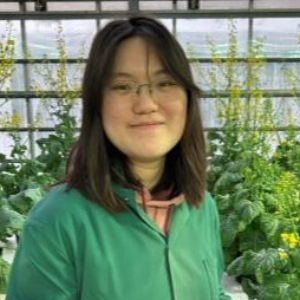Title : Ri technology: A Non-GMO approach to enhancing plant stress tolerance
Abstract:
Rhizobium rhizogenes is a plant bacterium that carries a plasmid containing the root inducing (Ri) genes. These Ri genes can be inserted into the plant host’s genome and induce hairy root formation. The integration process, called horizontal gene transfer (HGT), has been exploited in research to generate naturally transformed plant lines of several species, e. g. in oilseed rape. Additionally, it has serendipitously occurred in nature millions of years ago yielding the presence of Ri genes in several species, e.g. sweet potato, blueberry, as well as some Nicotiana and Linaria species. Therefore, the naturally transformed plants, generated under controlled conditions, are not defined as a genetically modified organism (GMO) according to the European Union and Japanese regulatory framework. Subsequently, the Ri technology can be used as a valuable biotechnological tool to generate plants with altered phenotypes, such as the already commercially marketed kalanchoe cultivar ‘Molly’, which shows compact growth. Previous studies demonstrated advantages of Ri oilseed rape under drought through e.g. increased root biomass or alteration of the phytohormonal status of the plant. Exploring further evolutionary advantages, one of the Ri genes, rolD, encodes the RolD protein, which shows sequence homology with ornithine cyclodeaminase. This enzyme catalyses the conversion of ornithine into proline in R. rhizogenes. This enzymatic activity was also detected in extracts from tobacco plants exhibiting rolD overexpression. The observed ability of wild plant species, such as Veronica agrestis, which carries this gene, to thrive in naturally cold environments, combined with the known role of proline in cold acclimation, led to the hypothesis that Ri genes may enhance the cold acclimation capacity of plants. In the current study, gene expression of rolD and other cold responsive genes were investigated in Ri oilseed rape. Further, the proline content has been determined and connected to the physiological status of the plant, represented through membrane stability, chlorophyll content and efficiency of photosystem II. Another part of this study is to generate naturally transformed Arabidopsis thaliana with all Ri genes. Enabling the creation of a platform to study the mechanisms behind Ri technology, offering an efficient, convenient and fundamental approach to investigate the effect of Ri genes. In this study, three different methods to naturally transform Arabidopsis were conducted and compared. Inoculation with R. rhizogenes was applied on leaf explants and seedlings. After inoculation, the latter were observed for development of hairy roots. Based on that observation, hairy root induction efficiency was compared to non-inoculated explants. Floral dipping, as an innovative approach to generate Ri Arabidopsis, was tested for the first time. By combining evolutionary insights with biotechnological approaches, this study advances our understanding of Ri gene effects and lays a foundation for innovative strategies to enhance plant resilience without the regulatory constriction associated with traditional GMO-methods.


